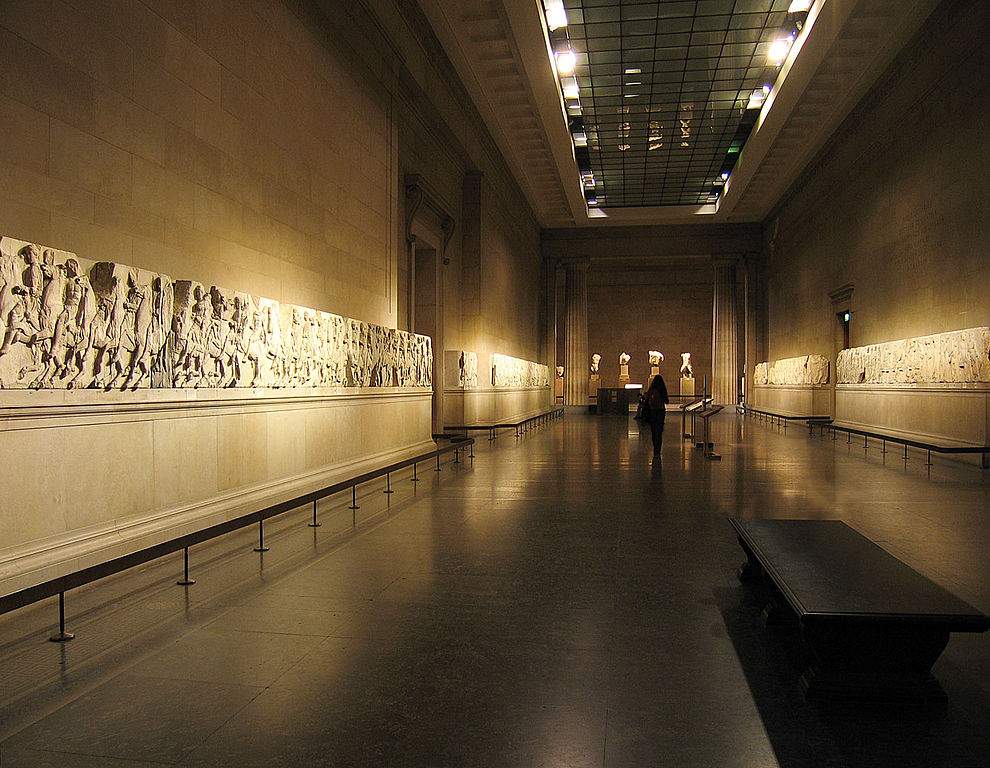Greece asks to borrow Elgin marbles. London responds, "only if you recognize they are ours"
A new chapter has been added to the long history of the Elgin marbles, the works (sculptures, inscriptions, architectural elements) that were removed from the Parthenon in the early 19th century at the behest of English diplomat Thomas Bruce, Earl of Elgin: the works, renamed the “Elgin marbles,” were transported from Athens to England, sold to the British government, and are now kept at the British Museum. This is a nucleus of marbles that has long been at the center of international debate, since many would like to see them returned to their country of origin, Greece (there is even a pro-return committee, which was the protagonist earlier this year of a heated exchange with British Museum director Hartwig Fischer, who had reiterated that the UK will not return the Elgin marbles to Greece).
Now Greece would like the marbles on loan for an exhibition to be held in 2021 to celebrate the 200th anniversary of the country’s independence, which disengaged from the Ottoman Empire on January 1, 1822. The request came directly from the Greek prime minister, Kyriakos Mitsotakis, who in exchange for the Elgin Marbles offered the United Kingdom the chance to lend some ancient works that have never moved from Greece and could be temporarily displayed at the British Museum. “Because of the importance of 2021,” Mitsotakis told The Observer newspaper, "I will propose to Boris Johnson, as a first move, to lend us the sculptures for a certain period of time, and we will send in return some important works that have never left Greece, so they can be shown at the British Museum. The Acropolis does not only belong to Greece; it is a monument of global cultural heritage. But if we want to see this monument in its integrity, we need to see the Parthenon sculptures in situ. This is about bringing the monument together." The same request has also been made to France, since the Louvre preserves a portion of the Parthenon frieze.
Day before yesterday came the British Museum’s response: London will ask Athens to formally recognize British ownership over the Elgin marbles if it wishes to receive them on loan. “A pre-condition for any loan,” a spokesman for the British told The Telegraph newspaper, “is to recognize that the ownership is with the lending institution. We believe we have the legal titles to hold the sculptures that are part of the British Museum’s collection. No museum or gallery in the world would lend its objects if the institutions receiving them did not recognize their ownership. These are the conditions. They don’t apply to the marbles specifically, but they are a basic condition for all loans, which applies not only to us, but to all museums.”
So the negotiations are becoming more complicated, not least because Greece’s response has already arrived, through the mouth of Culture Minister Lina Mendoni, who again the day before yesterday, during a speech on Greek Skai TV, said that “rights cannot descend from theft.” Greece’s position, Mendoni said, “has not changed in any way, simply because we cannot accept theft. A loan has nothing to do with our long-standing demand.”
Mitsotakis’s proposal, however, had been criticized by the opposition led by former Prime Minister Alexis Tsipras as naive, not least because, as the institution’s response shows, it would allow the British Museum to pass as the rightful owner of the marbles. “Rather than borrowing them,” Tsipras wrote on Facebook, “the government should demand the permanent return of the Parthenon marbles, with the support of us all.” The majority, however, in turn criticized Tsipras, guilty of doing little on the issue.
In any case, the British also made it known that it has not yet received any formal request from Athens.
Pictured: the Elgin marbles at the British Museum. Ph. Credit Andrew Dunn
 |
| Greece asks to borrow Elgin marbles. London responds, "only if you recognize they are ours" |
Warning: the translation into English of the original Italian article was created using automatic tools. We undertake to review all articles, but we do not guarantee the total absence of inaccuracies in the translation due to the program. You can find the original by clicking on the ITA button. If you find any mistake,please contact us.





























